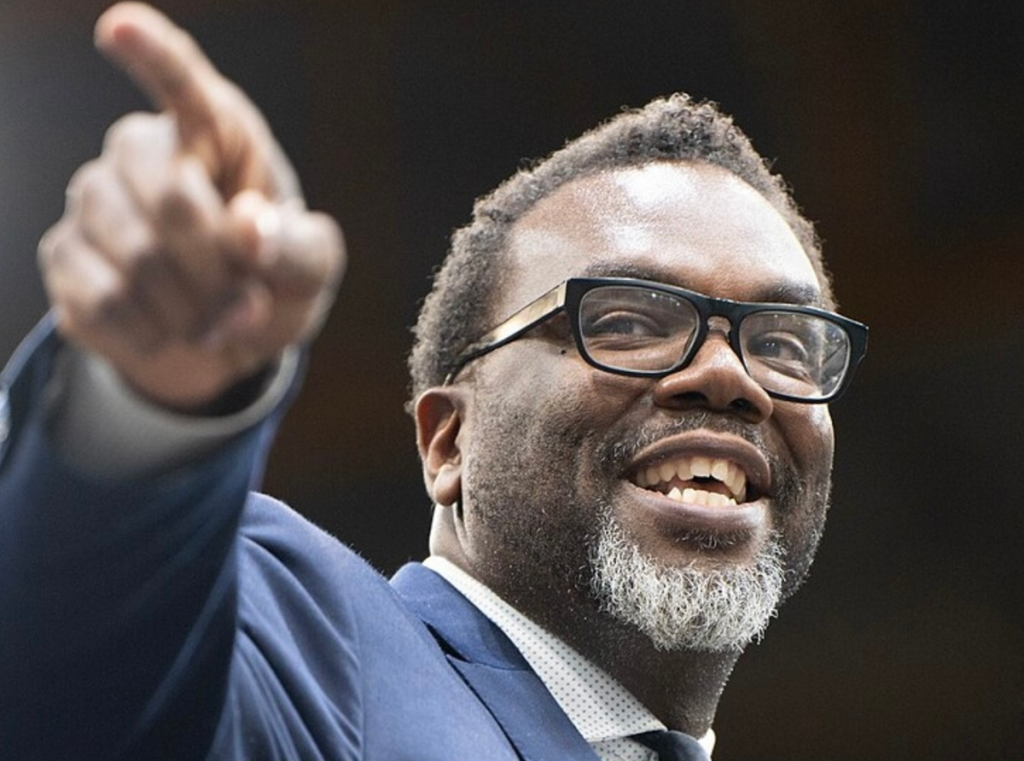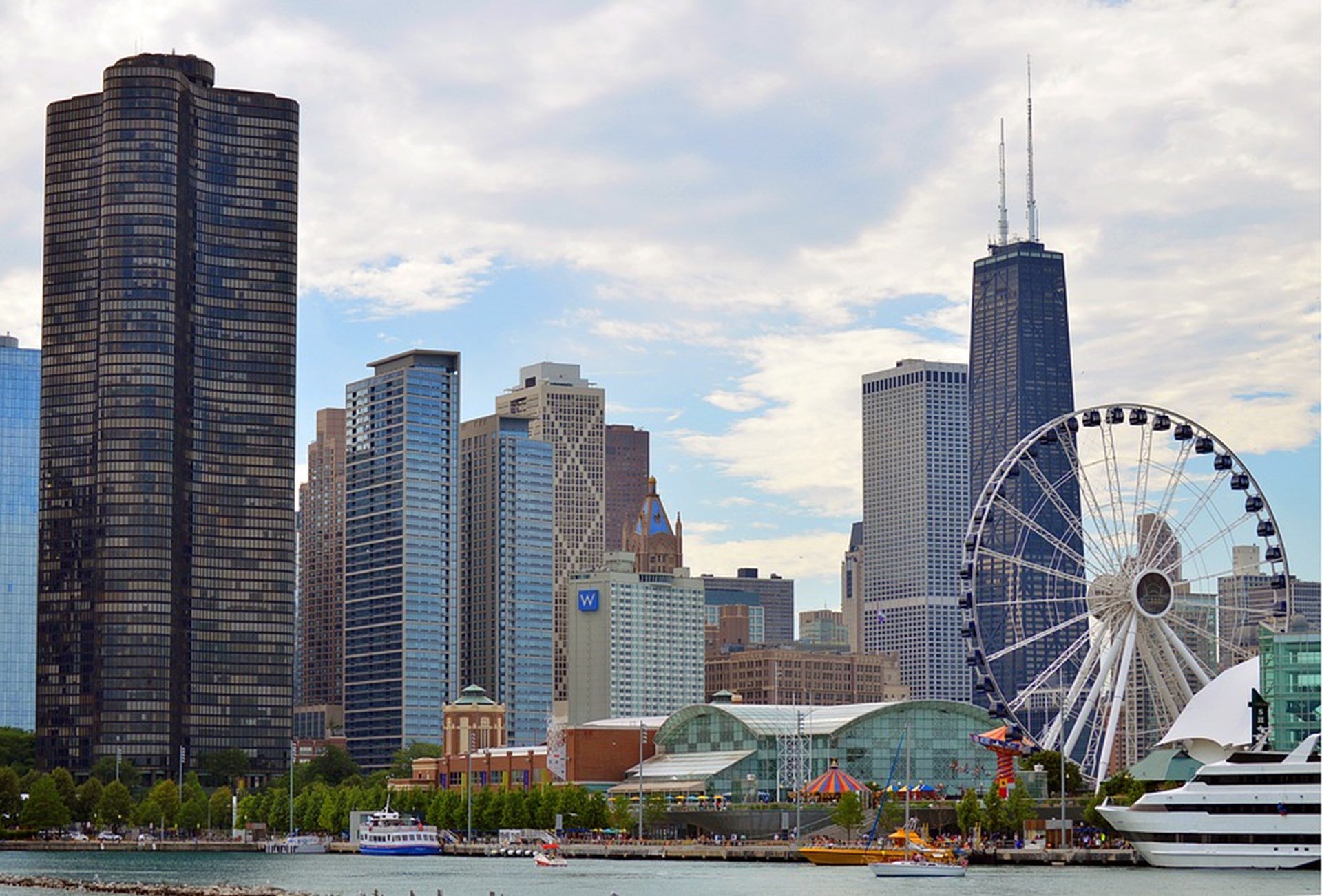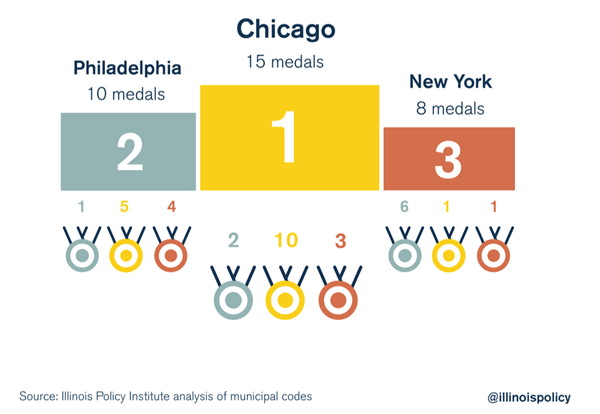In 1987, U.S. Education Secretary Bill Bennett famously traveled to Chicago, where he ruffled feathers by telling a closed-room group that the Windy City’s school system was “the worst in the nation.”
Local parents and educators bristled at the charge, which resulted in an awkward New York Times story. But decades of data would subsequently prove that Mr. Bennett was basically correct: Chicago’s schools were a total mess.
The city’s own accountability report card would later demonstrate that huge majorities of students in the city’s worst schools—75 percent in elementary and 95 percent in high school—failed to meet the state standards.
Things hardly improved during the pandemic, even though the Chicago Public School (CPS) system was spending roughly $28,000 per student (partly thanks to federal bailout cash).
“Just 30% of Black students meet or exceed reading standards in the third grade, and the number falls to 14% for 11th graders, according to data from the Illinois State Board of Education,” The Chicago Tribune pointed out last year.
Chicago schools clearly aren’t getting the job done, but political leaders in the city have discovered a solution to the problem: stop grading schools.
“I personally don’t give a lot of attention to grades,” Mayor Brandon Johnson said during a recent interview. “How do you grade a system, when the system has not fulfilled its basic obligation of providing an equitable system that speaks to the needs [of students].”
Mr. Johnson went on to explain a better way to evaluate Chicago’s school system.
“My responsibility is not simply to just grade the system, but to fund the system,” he said. “That’s how I’m ultimately going to grade whether or not our public school system is working: based upon the investments that we make to the people who rely on it.”
This isn’t mere idle chatter.
Earlier this year, the Chicago Board of Education scrapped its school rating policy, which was designed to rate schools on a range of performance goals, including how students performed on state tests.
WBEZ, an NPR-affiliated Chicago radio station, reported that Chicago’s system had been criticized for “relying too heavily on test scores and unfairly branding schools,” adding that the “new accountability policy veers away from any rating.”
One can see why leaders in Chicago favor grading schools by the amount of money they receive versus the academic performance of students.
Data from the Illinois State Board of Education show that not one student in the 22 schools analyzed in a widely read report can read at grade level. In 18 of those schools, there wasn’t a single student who demonstrated proficiency in math or reading. (Despite this, some of these schools were given the rating “commendable.”)
Again, this is the state of Illinois’ own data.
If you grade these schools by funding, it’s a different story, of course. Per-student funding at Chicago Public Schools is now approaching $30,000 ($29,400, according to WBEZ). That is nearly double the national average ($14,347), according to the U.S. Census Bureau.
Just like that—simply by grading schools by the funding they receive instead of their actual performance—CPS goes from one of the worst school districts in the United States to one of the best.
We all know this is no way to judge schools, of course. Accountability matters, and it’s hard to think of a worse solution than simply sending more and more money to failing systems and demanding less accountability for how that money is spent.
Indeed, it’s this paradigm that has brought us the failed, bureaucratic education system America sees today.
More than 30 years ago, John Hood, the author and president of the John W. Pope Foundation, explained why the government was wholly unsuited to teach America’s students, and predicted U.S. schools would continue to decline despite steadily increasing government spending:
“When every call for fundamental change in American education is rebutted not by arguments about student achievement but by arguments focusing on race, class, social mixing, and other social concerns, it is difficult to imagine real progress.
“When teachers spend much of their day filling out forms, teaching quasi-academic subjects mandated from above, and boosting student self-esteem (as contrasted with serf-respect, which is earned rather than worked up), learning is difficult if not impossible.”
Mr. Hood had gleaned the same truth the famous educator John Taylor Gatto (1935–2018) had learned.
Mr. Gatto, the Teacher of the Year in New York State in 1991 and author of “Dumbing Us Down,” understood it wasn’t “bad teachers” or a lack of funds responsible for America’s failing schools. It was the system itself, which was built on coercion, bureaucracy, and obedience instead of actual learning, discovery, and collaboration with families.
“Independent study, community service, adventures and experience, large doses of privacy and solitude, a thousand different apprenticeships—the one-day variety or longer—these are all powerful, cheap, and effective ways to start a real reform of schooling. But no large-scale reform is ever going to work to repair our damaged children and our damaged society until we force open the idea of ‘school’ to include family as the main engine of education,” he wrote.
“If we use schooling to break children away from parents—and make no mistake, that has been the central function of schools since John Cotton announced it as the purpose of the Bay Colony schools in 1650 and Horace Mann announced it as the purpose of Massachusetts schools in 1850—we’re going to continue to have the horror show we have right now.”
Mr. Gatto wrote these words more than 30 years ago. And though I wouldn’t have described U.S. schools as a “horror show” in 1992 (I was only 13), I certainly would today.
Despite an objective decline in U.S. schools, which has resulted in a mass exodus of students, politicians seek to continue pumping more and more money into struggling schools.
This wouldn’t have surprised Mr. Gatto, who observed years ago that the primary purpose of schools in modern America was no longer education (if it ever was).
“We must wake up to what our schools really are: laboratories of experimentation on young minds, drill centers for the habits and attitudes that corporate society demands,” he wrote.
Years ago I would have brushed off Mr. Gatto’s words as fanciful hyperbole. I don’t today.
Moreover, I think it’s become abundantly clear that the greatest obstacle to educational reform is the government itself—and politicians who want to grade schools by how much money they receive from taxpayers instead of whether students are actually learning.
This article originally appeared on The Epoch Times.
Jon Miltimore
Jonathan Miltimore is the Editor at Large of FEE.org at the Foundation for Economic Education.
This article was originally published on FEE.org. Read the original article.




 The tax is specifically related to streaming services, so the PlayStation games themselves will not be subject to the 9 percent tax. But in today’s subscription-heavy economy, many users purchase these consoles as a medium to stream videos and music rather than using them solely to play games. Not to mention, the tax will still include subscription services that allow Playstation users to connect and play with other users around the globe. So if you own a PlayStation in Chicago, it is unlikely that you will be able to fully avoid this tax.
The tax is specifically related to streaming services, so the PlayStation games themselves will not be subject to the 9 percent tax. But in today’s subscription-heavy economy, many users purchase these consoles as a medium to stream videos and music rather than using them solely to play games. Not to mention, the tax will still include subscription services that allow Playstation users to connect and play with other users around the globe. So if you own a PlayStation in Chicago, it is unlikely that you will be able to fully avoid this tax.